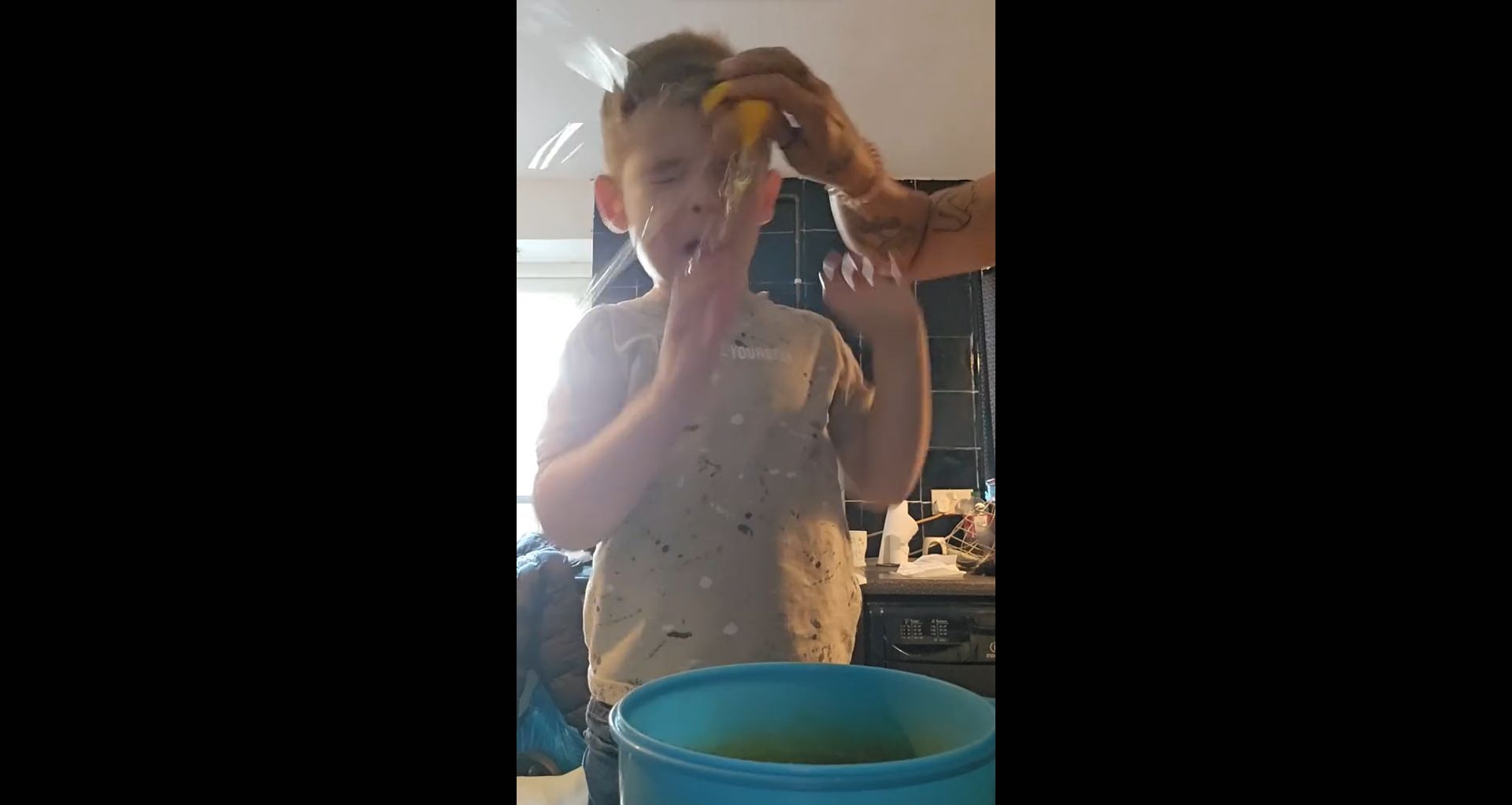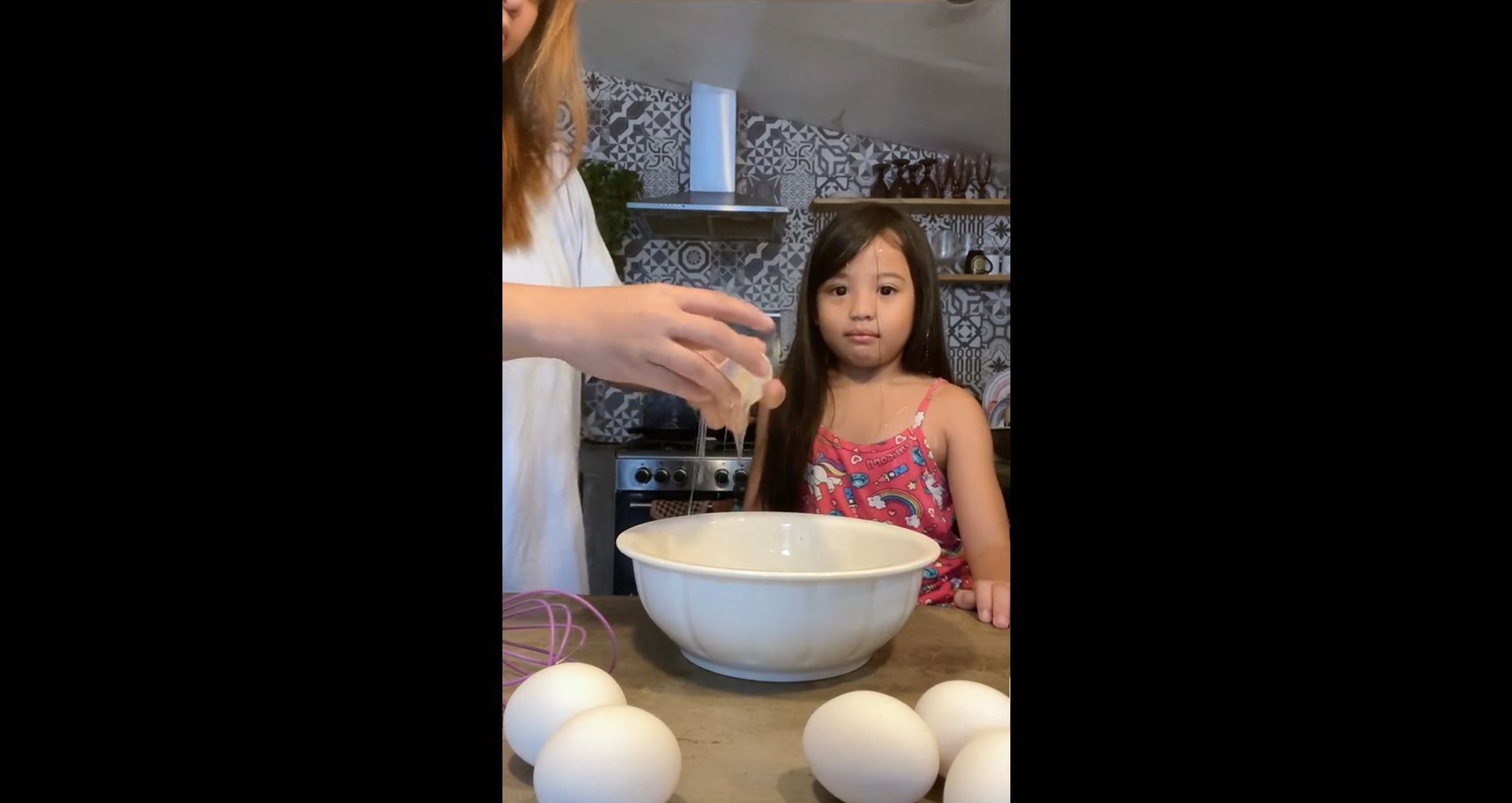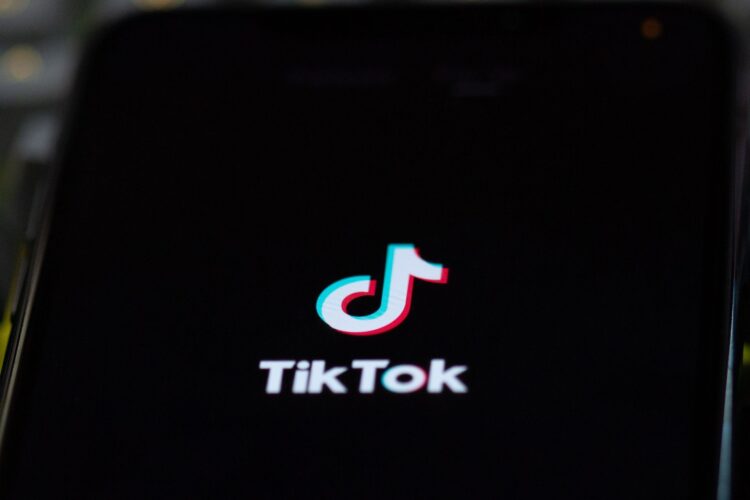The world of social media is no stranger to viral trends, and the latest one taking over the popular social media app is the TikTok egg cracking trend. In this peculiar prank, parents are capturing the moment when they crack a raw egg on their toddlers’ heads, all for the sake of laughter.
The hashtag #eggprank has skyrocketed to over 670.7 million views, but beneath the giggles lies a growing concern among medical professionals about potential harm to the children involved.

What exactly is the TikTok egg cracking trend?
If you’ve scrolled through TikTok recently, you might have come across videos that fall under the #eggprank category. These clips often feature a parent and their little one in the kitchen. The setup is simple: a raw egg, a child’s unsuspecting head, and a dramatic egg-cracking moment. Instead of cracking the egg into a pan or bowl, it lands directly on the child’s head, with the content creators then transferring the egg’s contents into a container.
Responses from the children vary, with some crying, others appearing stunned, and a few retaliating in kind. The popularity of the TikTok egg cracking trend is undeniable, as evidenced by the staggering number of views under the hashtag.

Parents may view this prank as light-hearted fun, but many TikTok users have expressed concern in the comments. The question arises: Could this seemingly innocent prank have unintended consequences for the children’s well-being?
Concerns about the TikTok egg cracking trend
Medical experts are stepping in with their insights. While they don’t believe the parents have malicious intent, they highlight potential short-term effects, including bruising or even the spread of germs from raw eggs. Dr. Meghan Martin, a pediatric emergency medical physician at Johns Hopkins All Children’s Hospital, emphasizes the risks of getting raw yolk on children’s faces due to the presence of salmonella. In her words, “We’re literally smacking salmonella on their foreheads.”
A spokesperson for TikTok chose not to comment on the matter, leaving the platform’s role in the dissemination of such trends a topic of discussion.
Some professionals are conducting their own experiments to understand the impact better. Amanda Mathers, a pediatric occupational therapist, attempted the egg prank on herself and was surprised by the force needed to crack an egg on her fully developed skull. On the other hand, Rebecca Burger-Caplan from Mount Sinai Hospital in New York believes that a one-time experience like the egg prank might not have lasting effects on children.
@yourpediatricot I know as parents you never want to harm your child. This post is meant to educate, for wny parwnts who were wanting to try this, or tor parents who already did this rrend and fan go back wnd have a conversation with their child about what happened. ••• Toddlers brains at this age don’t yet fully comprehend jokes like this and although they may laugh… their brain is thinking “WHAT THE HECK?!” ••• Skip this trend parents, it’ll save you in the long run 🤍 #eggcrackchallenge #eggcrackprank #eggcrackreaction #emotionalintelligence #raisingconfidentchildren #raisingkids #donttrythisathome #pediatricot
While opinions differ, there’s consensus that parents play a significant role in shaping their children’s expectations. The choice between maintaining predictable interactions and occasionally deviating from the norm can influence a child’s perception of their parents.
Amid the debates, stories of families participating in the egg prank emerge. Erisa Mullai, a mother of four, shares how the experience has become a cherished memory for her family. The video of their prank brings laughter and joy whenever they watch it. Erisa acknowledges the mix of reactions, highlighting the importance of maintaining a sense of humor in parenting.
https://www.tiktok.com/@erisa_laska/video/7269223658990619946?_r=1&_t=8f3pgnL5bpq
As with any trend, there’s always the potential for unintended consequences. Medical professionals worry that young children witnessing such pranks might internalize harmful behaviors. The developmental stage of toddlers’ brains makes them highly receptive to their environment, leading experts to voice concerns about the potential long-term impact.
In the end, while the egg prank might continue to entertain audiences, it raises important questions about the influence of social media on parenting practices and child development. As the debate continues, one thing is clear: the world of viral trends is full of surprises, both funny and thought-provoking.

From that aspect, another trend that raised concerns about the culminating influence of social media was the Well Well Well trend.
Featured image credit: Solen Feyissa / Unsplash





